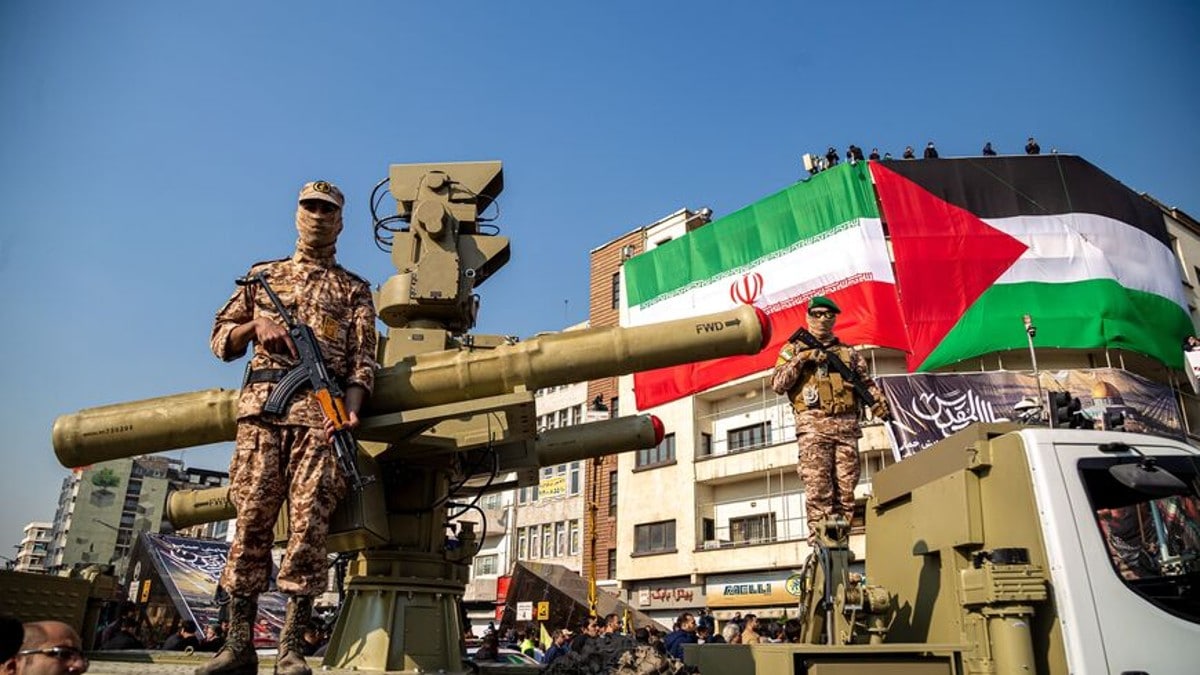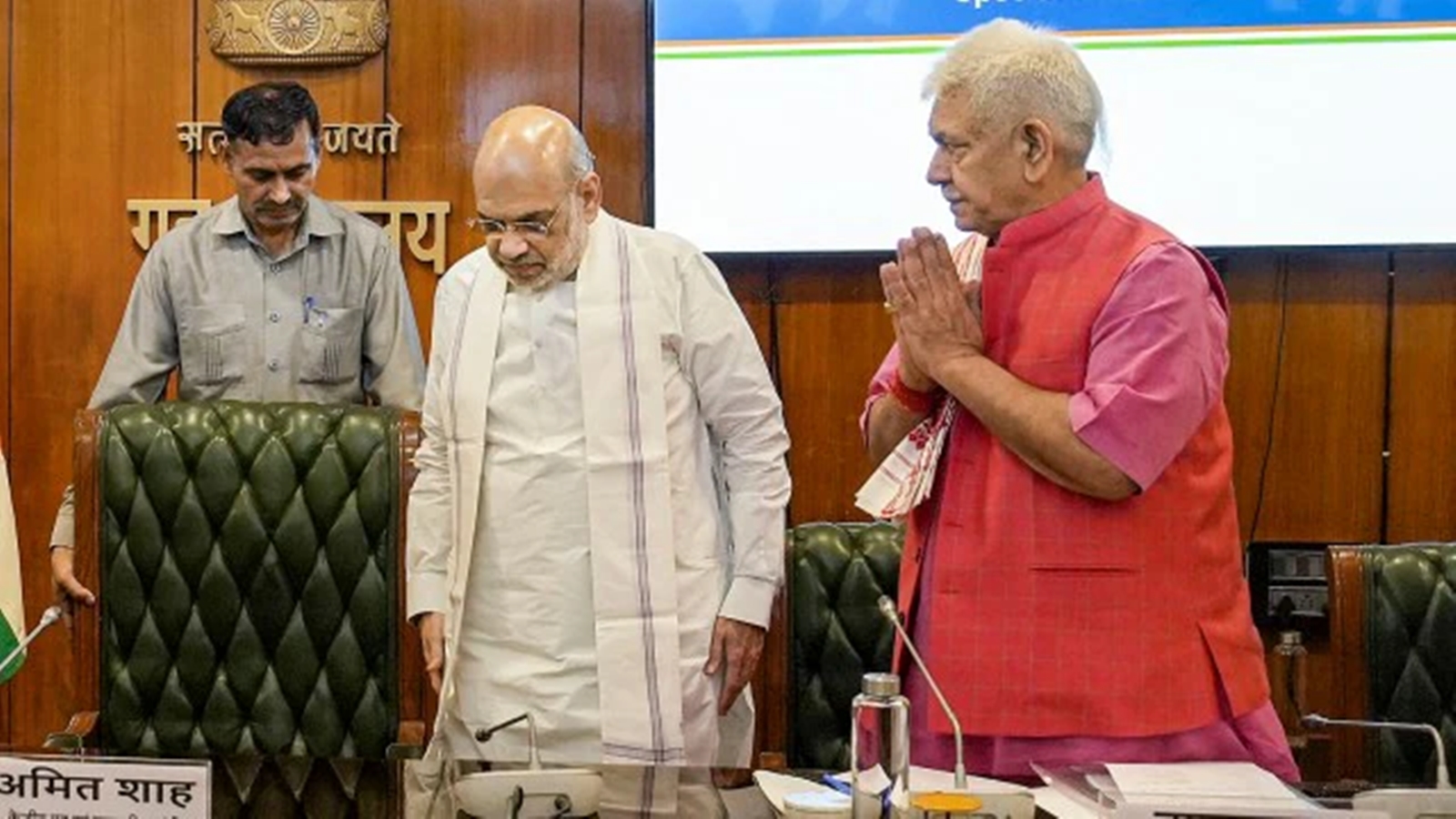How Iran is biggest gainer in Gaza war

The regional conflict between Israel and Iran will have a lasting impact, reshaping power equations and alliances. Iran is now seen as the only Muslim power capable of challenging the Israeli regime in the Middle East
The unfolding Gaza war has established Iran as the most dominant regional power in the Middle East. With over 38,000 Palestinians killed, including children and women, along with more than 490,000 Palestinians experiencing catastrophic food shortages, and nearly three-quarters of Gaza rendered uninhabitable since the October 7 attacks, the Gaza war has shown us in clear terms that there is no Arab power left in the region to challenge Israel. However, Iran is the only credible Muslim power left in the region capable to speak for the Palestinian cause. Following Hamas’s October 7 attacks on southern Israeli cities, Iran’s parliament, the Majlis, praised Hamas’s bold actions. Supreme Leader Seyyed Ali Khamenei publicly supported Hamas fighters and denounced the Zionist regime, prompting Israeli accusations of Iran’s direct involvement. The Biden administration’s failure to handle the Gaza war further led to suspicions of Iranian logistical support for Hamas. However, Iran has denied any direct involvement in the attacks. Meanwhile, it maintains close relations with Palestinian resistance groups like Hamas and Islamic Jihad. Axis of Resistance The term ‘Axis of Resistance’ refers to a geo-strategic and geopolitical alliance among certain countries, like Iran, Iraq, and Syria, and groups such as Hezbollah in Lebanon, that share common goals and interests. Thus, Iran’s involvement in the Gaza war is part of the ‘Axis of Resistance’. Iran-allied Lebanon’s Shi’ite armed group, Hezbollah, has continuously kept Israel engaged on its northern border through a low-intensity conflict targeting mostly military installations in Israel. In contrast, Israel has responded and inflicted heavy losses on the region. Additionally, Hezbollah has linked the cessation of hostilities with Israel to a permanent ceasefire in Gaza. Lately, there has been an imminent threat of a full-scale war between Hezbollah and Israel. The Houthis in Yemen, another part of the ‘Axis of Resistance’, have disrupted international shipping in the Red Sea, targeting Israeli and Western ships. They have also attacked Israeli installations within Israel, including the Eilat port. Pro-Iran Shi’ite militias in Iraq have launched rocket attacks on Israel, further illustrating Iran’s extensive influence. Iran-Israel Conflict in the Middle Eastern region The Iran-Israel conflict is an important aspect of the ongoing Gaza war. In the Middle Eastern region, Iran and Israel have been engaging in a shadow and proxy war for decades now. Historically, Iran and Israel enjoyed good relations during the Shah’s regime. Post-1979, following the Islamic revolution, Iran adopted a staunchly anti-Israel and pro-Palestine stance, making them fierce regional adversaries under the rule of Ayatollah Ruhollah Khomeini. In April 2024, Israel’s targeting of the Iranian consulate in Damascus, Syria, resulting in the deaths of two Iranian generals, led to Iran’s retaliatory ‘Operation True Promise’ against Israeli military installations in Israel. This unprecedented direct attack from Iranian territory has shifted the military balance, with experts like former Iranian foreign minister Hossein Amir-Abdollahian and John Mearsheimer noting that Iran coordinated closely with American authorities during these attacks. This limited conflict marked Israel as the biggest loser and Iran as the net gainer. Arab Regimes and Changing Regional Dynamics The Arab regimes’ response to Israel’s war on Gaza has been largely ineffective. Symbolic summits under the Arab League banner have failed to pressure Israel into stopping its assault on Gaza or to significantly aid the besieged Palestinians. In fact, Arab regimes have cooperated with Israel and maintained official and unofficial ties with the State of Israel throughout the war. Early in the conflict, the Houthis’ blockade of the Red Sea waterways for international shipping led some Arab countries, like the UAE, Saudi Arabia, and Jordan, to assist Israel in establishing a land corridor through their territories to secure supplies from across the Arabian Sea from ports such as India’s Mumbai port. During the Iran-Israel conflict, Jordan actively defended Israel by thwarting incoming Iranian missiles over its territory. Reports also indicate that Saudi Arabia provided intelligence to the US during Iran’s attacks on Israel. Egypt, the only Arab country bordering Gaza, has done little to alleviate Palestinian suffering. Prominent Egyptians, especially in the Sinai Peninsula, who have close ties with Abdel Fattah Al-Sisi, are profiting from the war by charging hefty fees to Palestinians fleeing through Egypt. Despite some mediation efforts between Israel and Palestinian resistance, Egypt has largely cooperated with the US and like-minded Arab regimes to contain the Gaza war’s spillover, doing little for Gazans. A week ago, Israeli top general Herzi Halevi held a meeting with military chiefs of Saudi Arabia, Bahrain, UAE, Jordan, and Egypt in Bahrain to work out a post-war plan with them along with the US’s overall commander for the Middle East. According to a new report by Israel’s Central Bureau of Statistics, Egyptian exports to Israel have doubled in 2024, and UAE’s and Jordanian exports have surged despite the raging war. Almost all these countries have clamped down heavily on pro-Palestinian protests in their countries. Does all this suggest that Arab regimes have betrayed the Palestinian cause? While these regimes have maintained a largely pro-Palestinian and somewhat anti-Israeli rhetoric in public, their actions suggest otherwise. While it’s not entirely fair to claim that Arab regimes have betrayed the Palestinian cause, strategic and tactical reasons related to Iran’s growing regional influence explain why these Arab countries have cooperated with Israel or aligned themselves with the United States’ position on the conflict. Moreover, Arab countries possess the economic and diplomatic clout to help end Israel’s war on Gaza. This power shift has been evident since the Abraham Accords of 2020, with most Arab countries now viewing Israel as a partner rather than an adversary. Saudi Arabia’s de facto ruler, Mohammad Bin Salman, has openly stated that they see Israel as a future partner. Saudi Arabia has been engaging with Israeli and American leadership on normalising relations, a process disrupted by the Gaza war. Saudi foreign minister Faisal Bin Farhan has publicly linked normalisation with Israel to the establishment of a sovereign Palestinian state, though the sincerity of this stance remains to be seen. Shifting Geopolitics in the Middle East There seems to be a clear shift in Middle Eastern geopolitics today. The current Gaza war has shown us glimpses of this power shift. Israel is firmly backed by its all-weather friend America in its war on Gaza and is also provided military and diplomatic support by its Western allies, such as Germany and the United Kingdom. America’s current policy on the Middle East or its position on the Gaza war seems to be endorsed by the Arab monarchical and military regimes. On the other hand, there is Iran and its ‘Axis of Resistance’ plus countries like Syria. This alliance seems to be externally supported by powers like Russia and China, which have recently increased their foothold in the Middle East and desire to see America’s influence in the region wane. Iran has emerged as the predominant regional power, comparable to Egypt under Gamal Abdel Nasser. Its influence stretches from the Red Sea to the Mediterranean, a fact made more apparent during the ongoing Gaza war. In this conflict, nearly all regional and extra-regional players are on the losing side, except Iran. Both the authors are doctoral fellows at the School of International Studies, Jawaharlal Nehru University, New Delhi. The views expressed in the above piece are personal and solely those of the authors. They do not necessarily reflect Firstpost’s views.






0 Comments